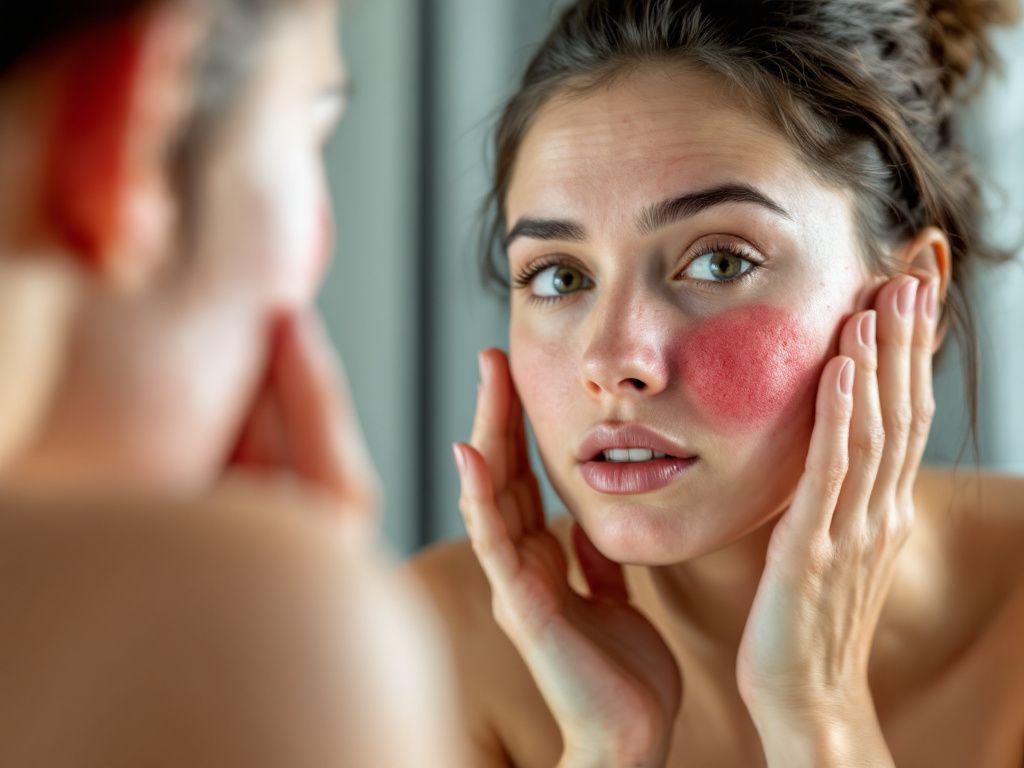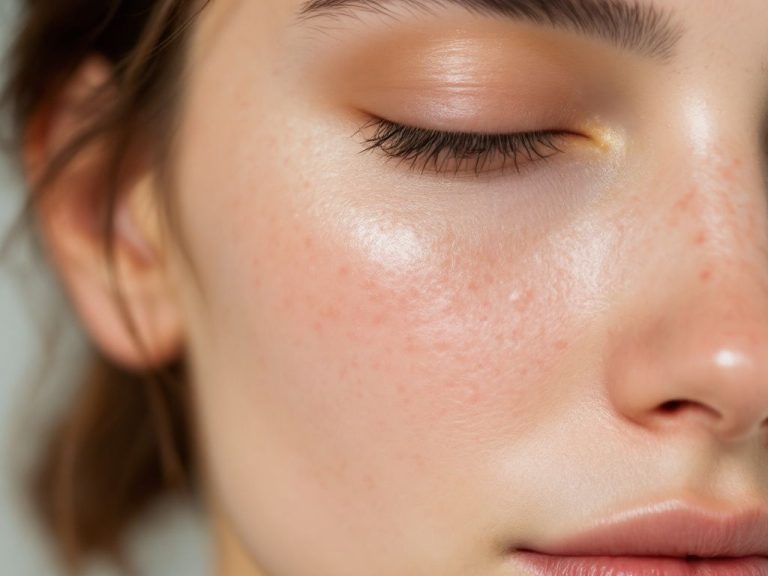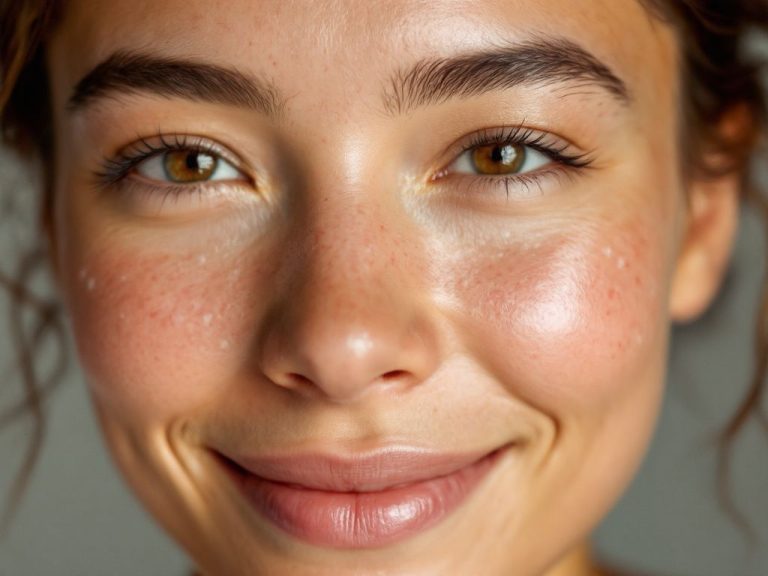Hey there! So, let’s dive into something I suspect you’re either dealing with or just super curious about—nodular acne. Imagine, for a moment, that persistent, painful bump that feels like it’s camped out for the long haul on your skin. Frustrating, right? I get it. Sometimes, it feels like nodular acne is that uninvited guest who just refuses to leave. Well, here’s the deal: understanding it better is your first step in evicting it for good.
Table of Contents
ToggleWhat is Nodular Acne?
Okay, so let’s kick things off with the basics. Nodular acne is not just your run-of-the-mill pimple. Nope, it’s a more severe breakout that sets up shop way deeper within the layers of your skin. This isn’t like those surface whiteheads or little blackheads that can often be dealt with relatively simply. We’re talking about a breakout that feels hard like a stone or marble.
Nodular acne happens when the pores get clogged with oil, bacteria, and other gunk, then cause inflammation around the hair follicles. The real head-scratcher? It often sticks around, deep within the skin, and doesn’t form a white head, making it a bit sneaky.
The inflammation can go pretty deep, hence the term “deep acne.” While other forms of acne can come and go, nodular acne is stubborn and can often persist for weeks or even months if not treated properly.
What Causes Nodular Acne?
So, you’re probably wondering what brings on these nasty little intruders in the first place. Here’s the scoop: while the exact cause still gets debated among experts, some usual suspects consistently rear their heads.
**1. Hormones:** Ever heard the term “hormonal acne”? Yeah, hormones, especially androgens like testosterone, can swing your oil production into overdrive. More oil often means more clogs and oh hello, nodular acne.
**2. Genetics:** Sometimes, we have our parents to, unfortunately, thank for not just that eye color or those chiseled cheekbones but also our skin types and predispositions. If a close family member had severe acne, there’s a good chance it passed down to you.
**3. Stress:** Believe it or not, stress is not just an emotional thing—it can manifest physically too, by throwing your entire body, including your skin, off its game. Your body produces more stress hormones, messing with that delicate balance your skin needs to stay clear.

**4. Diet:** Here’s where things get a bit controversial but let’s just say you’ve probably heard it before: greasy foods, high sugar intake, or even that tall glass of milk every day can make your skin grumpy.
How to Identify Nodular Acne
Let’s talk detective work. Knowing you have nodular acne is obviously your first step before jumping into any treatment, right? Here’s the rub: nodular acne hurts. It’s sore to the touch and, unlike surface pimples, never seems to open up or drain because it’s so deep-set.
Imagine tiny marbles just below the surface. They can be flesh-colored or red if there’s a lot of inflammation. They can last for what feels like forever and tend not to play nice with most at-home treatments without serious intervention. Nodules also tend not to respond to squeezing or popping, which isn’t recommended anyway, but hey, we all know the temptation is real.
Why Seeing a Dermatologist is Key
Listen up, if any of the above sounds way too familiar, booking an appointment with a dermatologist can seriously be a game-changer. Trust me, professional guidance is invaluable when you’re dealing with nodular acne.
Here’s What a Dermatologist Might Recommend:
- Oral Antibiotics: Sometimes you need to kill that pesky bacteria inside. Antibiotics not only help decrease bacteria but also reduce inflammation.
- Retinoids: These can help unclog pores and, in the process, help with achieving clearer skin over time. Retinoids are usually found in prescription creams or oral medications.
- Hormonal Treatments: For certain females especially, treatments like birth control pills can help regulate hormone levels and surprisingly keep acne under control.
- Isotretinoin (Accutane): Kind of the gold standard when all else fails. This powerful oral medication can decrease sedum production significantly and works continuously to check your pores from the inside out.
In-Office Procedures:

- Corticosteroid Injections: It sounds intense (and it kind of is), but these shots are actually effective at shrinking and calming very inflamed nodular acne quickly.
- Laser and Light Therapy: These are less invasive choices, but very promising. They tackle bacteria and can reduce the symptoms you’re experiencing.
At-Home Care Tips to Support Your Treatment
While professional treatment is often necessary for nodular acne, don’t underestimate the power of smart home-based care! Here’s a list of some pretty practical things you can start doing, like, today.
- Stick to a Gentle Skin Care Routine: Choose a cleanser that won’t strip your skin. Think mild face washes. Those with benzoyl peroxide or salicylic acid can help (though remember, they usually assist more with surface acne, but they don’t hurt).
- Moisturize Like You Mean It: Your skin loves hydration, especially when combating acne. Opt for non-comedogenic moisturizers so you won’t clog those pores right back up.
- Hands Off the Merchandise: As tempting as it might be, touching or picking nodular acne just makes things worse and can lead to scarring.
- Sweet Dreams and Sun Beams: Ensure you get a decent amount of sleep nightly; it’s when your skin heals! Oh, and sun protection is a must. Some medications can make your skin more sun-sensitive.
Lifestyle Tweaks: Go the Extra Mile
Small habit changes can have a significant impact. Like really, who thought staying hydrated could mean clearer skin?
- Drink Water, Lots of It: Hydration helps keep your overall body in check including balancing what is happening with your skin.
- Watch Your Diet: Again, controversial perhaps, but lowering your intake of sugar, dairy, and high-glycemic foods can potentially benefit your skin. Each person’s body reacts differently, so do some experimentation to find what works for you.
- Chill Out: Easier said, I know! But incorporating stress-reducing practices like yoga, meditation, or simply setting aside some downtime can help.
- Consistent Exercise: Raises your heart rate, boosts your mood, and helps maintain a clean slate by flushing out toxins through sweat!
When All Else Fails: Consider Professional Therapy

Look, sometimes a little extra assistance is needed. We’re talking psychological therapies, which can help with the psychological toll nodular acne often creates. If you’re dealing with feelings of distress, anxiety, or low self-esteem triggered by acne, talking it out with a therapist might bring relief and coping mechanisms that really make all the difference.
Wrapping it Up: Your Nodular Acne Guide Takeaways
Here we are, back to square one but with a lot more know-how under our belts. Nodular acne can be a significant challenge, but armed with understanding, proper care, and possibly some professional help, it’s perfectly manageable.
Let’s whip up a little reminder list of our key points:
- Nodular acne digs deeper and demands a bit more nuance in treatment, unlike surface-level zits.
- Causes range from hormonal fluctuations and genetics to stress and diet.
- Professional treatments can be crucial but never discount supportive home care habits.
- Remember lifestyle wins like better nutrition and stress reduction can support your goal.
It’s about finding what works personally for you. Be patient and kind to yourself on this journey. Trust me, clearer days (and skin) are ahead!
Frequently Asked Questions
What is Nodular Acne?
Nodular acne is a severe form of inflammatory acne characterized by large, painful nodules that develop deep under the skin. These nodules are firm, red, and often feel like hard knots beneath the skin. Unlike other types of acne, nodular acne affects deeper layers of the skin and can lead to severe and persistent scarring if not treated properly[1][3][5).
What Causes Nodular Acne?
The exact cause of nodular acne is not fully confirmed, but it is known that androgen hormones play a significant role. Increased levels of androgen hormones, particularly during teenage years, can cause changes in the skin that lead to blocked pores and acne. Genetics is also a contributing factor, as individuals with a family history of severe acne are more likely to develop nodular acne[1][3][5).
What are the Symptoms of Nodular Acne?
The symptoms of nodular acne include firm, painful lumps under the skin and red bumps on the skin’s surface. These nodules are often painful to the touch and do not have a whitehead or blackhead at the center. They can appear individually or in clusters and are typically found on the face, chest, and back. Nodular acne can also involve inflammatory papules and pustules[1][3][5).
How is Nodular Acne Treated?
Treatment for nodular acne typically involves a combination of medications and professional procedures. Recommended treatments include oral antibiotics, systemic steroids, intralesional steroids, and hormonal therapy for women. Isotretinoin, a powerful oral retinoid, is often prescribed for severe cases. Additionally, topical treatments such as prescription-strength benzoyl peroxide, salicylic acid, and retinoids may be used. Office procedures like acne drainage, chemical peels, and laser therapy can also be beneficial[1][2][5).
References







